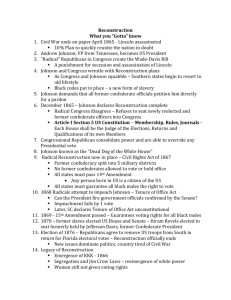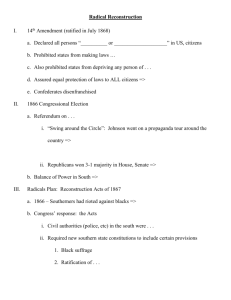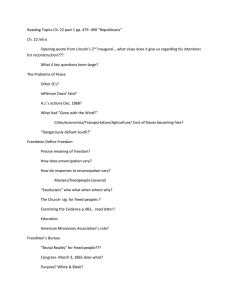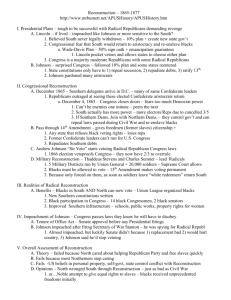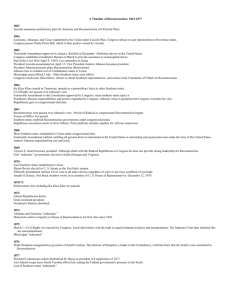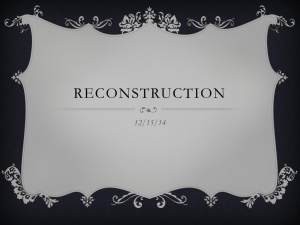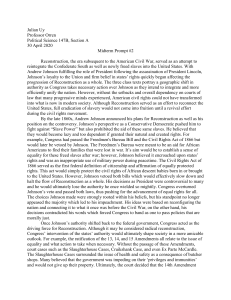Military Reconstruction - White Plains Public Schools
advertisement
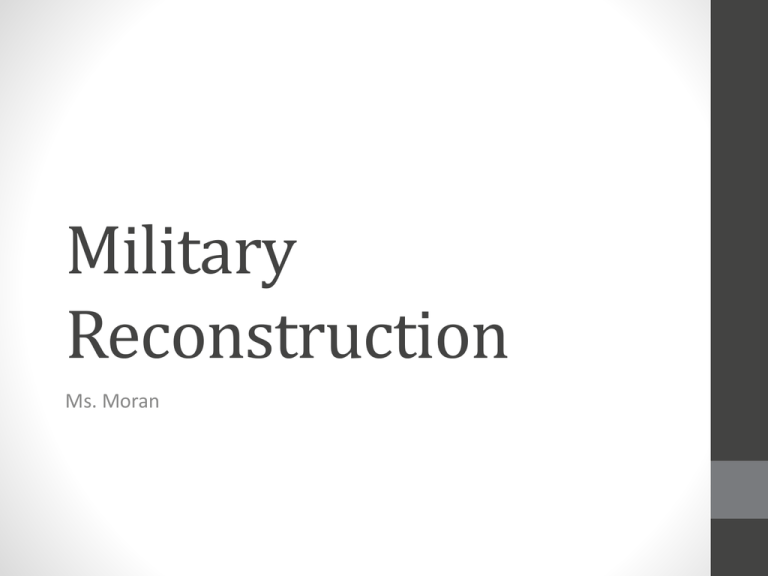
Military Reconstruction Ms. Moran Military Reconstruction • Congress Votes down Johnson’s plan • Confederacy divided into 5 sections. Each state was required to do certain things to be readmitted into the Union Congress vs. Johnson • Disagreed • Secretary of War, Edwin Stanton agreed with Congress’s Reconstruction plan • Johnson was not allowed to fire Stanton because Congress passes the Tenure of Office Act • Johnson fires him anyway Impeachment • Remember what impeachment REALLY MEANS • Put on trial but wins by one vote • Johnson stayed in office but had little power th 15 Amendment • Ratified in 1870. • The right of citizens of the United States to vote shall not be denied or abridged by the United States or by any state on account of race, color, or previous condition of servitude. • The Congress shall have power to enforce this article by appropriate legislation. Amnesty Act of 1872 • All white Southern ex-Confederates can vote and hold public office. • How will this impact on voting in the South?? Radical Reconstruction • Civil authorities in the territories were subject to military supervision. • Required new state constitutions to include black suffrage and ratification of the 13th and 14th Amendments. • In March, 1867, Congress passed an act that authorized the military to enroll eligible black voters and begin the process of constitution making. The South reacts • Black codes are set up Purpose: • Prevent African Americans from achieving social, political, and economic equality. • Forced many blacks to become sharecroppers [tenant farmers]. • Cause Moderate and Radical Republicans to unite Let’s take a look at how Freedmen were seen in the South


